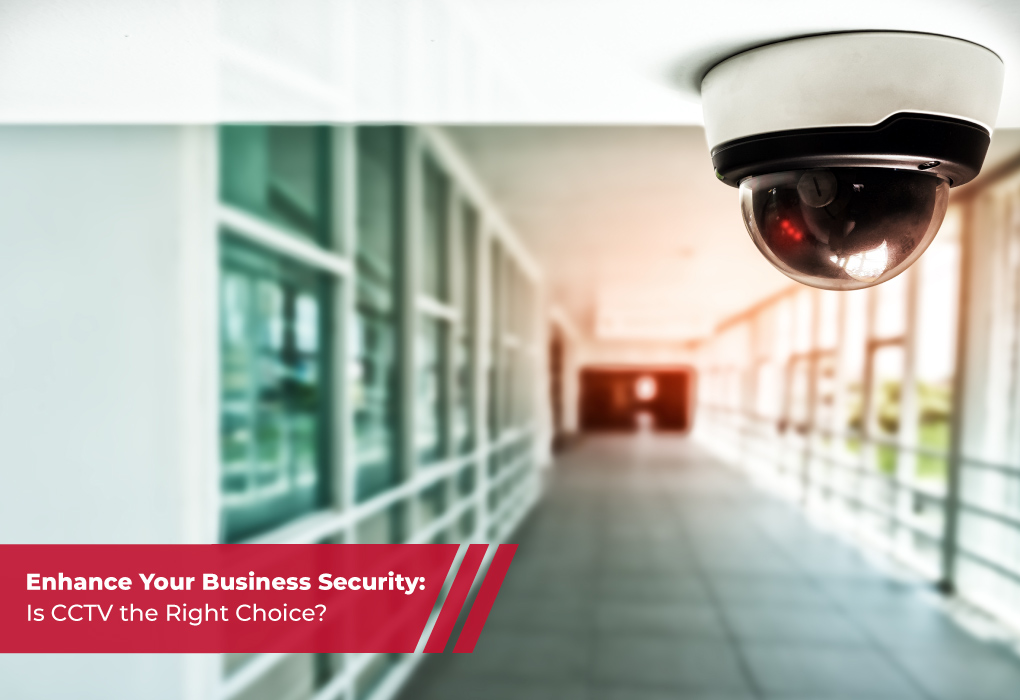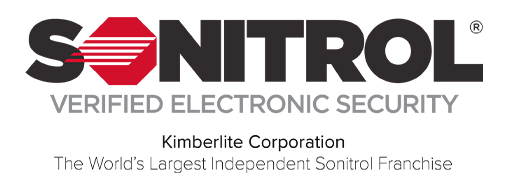What is CCTV and is it Right for My Business?

In an era where security is paramount for businesses of all sizes, adopting the right tools to protect your assets and ensure safety has never been more crucial. Closed-Circuit Television, or CCTV, has emerged as a leading solution in business security. Whether you’re managing a cozy café, a bustling retail store, or a sprawling warehouse, understanding what CCTV entails and whether it aligns with your needs is essential.
Demystifying CCTV
Closed-Circuit Television (CCTV) refers to a comprehensive network of video cameras strategically positioned to capture and record footage within a designated area. Unlike conventional television broadcasts, where signals are transmitted openly, CCTV functions on a closed circuit, transmitting its feed only to specific monitors or recording devices. The primary purpose of CCTV is to provide surveillance and security, offering businesses a proactive means of monitoring activities and events in and around their premises.
How CCTV Operates
A standard CCTV system comprises several integral components that collaborate to offer comprehensive security coverage. This includes
- Cameras: The cornerstone of any CCTV system, cameras come in various types such as dome, bullet, and PTZ cameras. Modern iterations boast high-definition resolution, night vision capabilities, and advanced motion detection.
- Cabling: The video feed from cameras is transmitted to central recording or monitoring stations. The choice between wired and wireless depends on distance and interference considerations.
- Recording Equipment: Recorded footage is stored on digital video recorders (DVRs) or network video recorders (NVRs). These devices offer continuous recording, motion-triggered recording, and remote access to view live or archived footage.
- Monitors: Dedicated monitors allow security personnel to view live camera feeds. These feeds can be increasingly accessed remotely through secure online platforms or mobile applications.
- Control Devices: Certain cameras can be manipulated through pan, tilt, and zoom functionalities, facilitating a closer look at specific areas.
- Storage: Recorded footage is stored digitally on hard drives or cloud-based storage solutions, enabling easy retrieval and review in case of incidents.
CCTV vs. Video Surveillance Systems
It’s essential to differentiate between CCTV and video surveillance systems, as they’re often used interchangeably but carry distinct connotations. While both concepts involve using cameras to monitor and record activities, video surveillance systems usually encompass various technologies. Video surveillance can include IP cameras, advanced analytics, integration with other security systems, and cloud-based storage.
On the other hand, CCTV traditionally refers to a closed, localized system involving cameras, monitors, and recording equipment within a limited area. Video surveillance tends to be more technologically intricate and versatile, while CCTV offers a more foundational approach to security monitoring.
Is CCTV the Right Choice for Your Business?
Deciding whether to implement CCTV hinges on a range of factors:
- Security Needs: Evaluate your business’s security requirements. Are you primarily concerned about theft, vandalism, employee conduct, or unauthorized access? CCTV can address these concerns by providing a visual record.
- Premises Size and Layout: Consider the size and layout of your business premises. Larger spaces may necessitate more cameras to ensure comprehensive coverage.
- Industry Specifics: Certain industries, such as retail and warehousing, inherently benefit from the monitoring capabilities of CCTV.
- Budget Considerations: The cost of setting up a CCTV system varies based on factors like the number of cameras, their features, and the complexity of installation. Consider the potential return on investment in terms of enhanced security.
- Legal and Ethical Factors: Be mindful of legal requirements and ethical considerations related to privacy and data protection in your region.
- Remote Accessibility: Modern CCTV systems offer remote access to live feeds and recorded footage through mobile apps and online platforms, allowing you to monitor your business from anywhere.
Closed-Circuit Television (CCTV) systems have transformed from simple surveillance tools into sophisticated security solutions catering to diverse business needs. Their potential to deter crime, monitor activities, and provide a visual record of incidents makes them an asset for safeguarding your business. However, as each business context is unique, a thorough assessment of your requirements, budget constraints, and legal obligations is imperative before deciding. By making a well-informed choice and incorporating CCTV thoughtfully, you can significantly bolster your overall business security strategy and contribute to the protection of your assets. Remember, security is an ongoing commitment, and a strategically implemented CCTV system can play a pivotal role in maintaining the safety and resilience of your business.
Commercial Security Systems Fresno | Sonitrol
For over 30 years, Kimberlite Corporation has kept businesses, schools, and homes safe in California. As the world’s largest independent Sonitrol systems dealer, Kimberlite operates 12 franchises in 20 contiguous counties from Los Angeles through California’s San Joaquin Valley to the San Francisco Bay Area and north to Santa Rosa. For more information, call SONITROL at 1-888-SONITROL


Connect with Sonitrol-Kimberlite